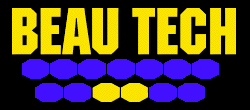Technical Library | 2019-06-07 14:49:54.0
ACI Technologies was contacted in regards to poor solder joint reliability. The customer submitted an assembly that was exhibiting intermittent opens at multiple locations on a ball grid array (BGA) component. The assembly’s functionality did not survive international shipping, essentially shock and vibration failures, immediately making the quality of the solder joints suspect. The customer was asked about the contract manufacturer and the reflow oven profile as well as the solder paste and surface finish used. The ACI engineering staff evaluated the contract manufacturer’s technique and determined that they were competent in the methods they used for placing thermocouples in the proper locations and developing the reflow oven profile. The surface finish was unusual, but not unheard of, in that it was hard gold over hard nickel, rather than electroless nickel immersion gold (ENIG). The customer was able to supply boundary scan testing data which showed a diagonal row of troublesome BGA pins.
Technical Library | 2014-04-24 16:37:42.0
By May 31, 2014, it is expected that companies, officially known as issuers, will be required to take the unprecedented step of submitting their first conflict minerals disclosures to the Securities and Exchange Commission, or SEC. This paper is intended to describe the content that certain sustainable and responsible investors, or SRIs, and nongovernmental organizations, or NGOs, expect to see in an issuer's Specialized Disclosure, or Form SD, and Conflict Minerals Report, or CMR, if a CMR is deemed necessary.
Technical Library | 2019-09-24 15:41:53.0
This paper focuses on three different coating material groups which were formulated to operate under high thermal stress and are applied at printed circuit board manufacturing level. While used for principally different applications, these coatings have in common that they can be key to a successful thermal management concept especially in e-mobility and lighting applications. The coatings consist of: Specialty (green transparent) liquid photoimageable solder masks (LPiSM) compatible with long-term thermal storage/stress in excess of 150°C. Combined with the appropriate high-temperature base material, and along with a suitable copper pre-treatment, these solder resists are capable of fulfilling higher thermal demands. In this context, long-term storage tests as well as temperature cycling tests were conducted. Moreover, the effect of various Cu pre-treatment methods on the adhesion of the solder masks was examined following 150, 175 and 200°C ageing processes. For this purpose, test panels were conditioned for 2000 hours at the respective temperatures and were submitted to a cross-cut test every 500 h. Within this test set-up, it was found that a multi-level chemical pre-treatment gives significantly better adhesion results, in particular at 175°C and 200°C, compared with a pre-treatment by brush or pumice brush. Also, breakdown voltage as well as tracking resistance were investigated. For an application in LED technology, the light reflectivity and white colour stability of the printed circuit board are of major importance, especially when high-power LEDs are used which can generate larger amounts of heat. For this reason, a very high coverage power and an intense white colour with high reflectivity values are essential for white solder masks. These "ultra-white" and largely non-yellowing LPiSM need to be able to withstand specific thermal loads, especially in combination with high-power LED lighting applications. The topic of thermal performance of coatings for electronics will also be discussed in view of printed heatsink paste (HSP) and thermal interface paste (TIP) coatings which are used for a growing number of applications. They are processed at the printed circuit board manufacturing level for thermal-coupling and heat-spreading purposes in various thermal management-sensitive fields, especially in the automotive and LED lighting industries. Besides giving an overview of the principle functionality, it will be discussed what makes these ceramic-filled epoxy- or silicone-based materials special compared to using "thermal greases" and "thermal pads" for heat dissipation purposes.
| 1 |

A US manufacturer of quality hand tools for those engaged in the repair, rework, R & D, testing, and assembly of electronic components and printed circuit boards from Through Hole to 2Mil Pitch Surface Mount.
98 Elm St.
Portland, ME USA
Phone: 1-207-775-6139